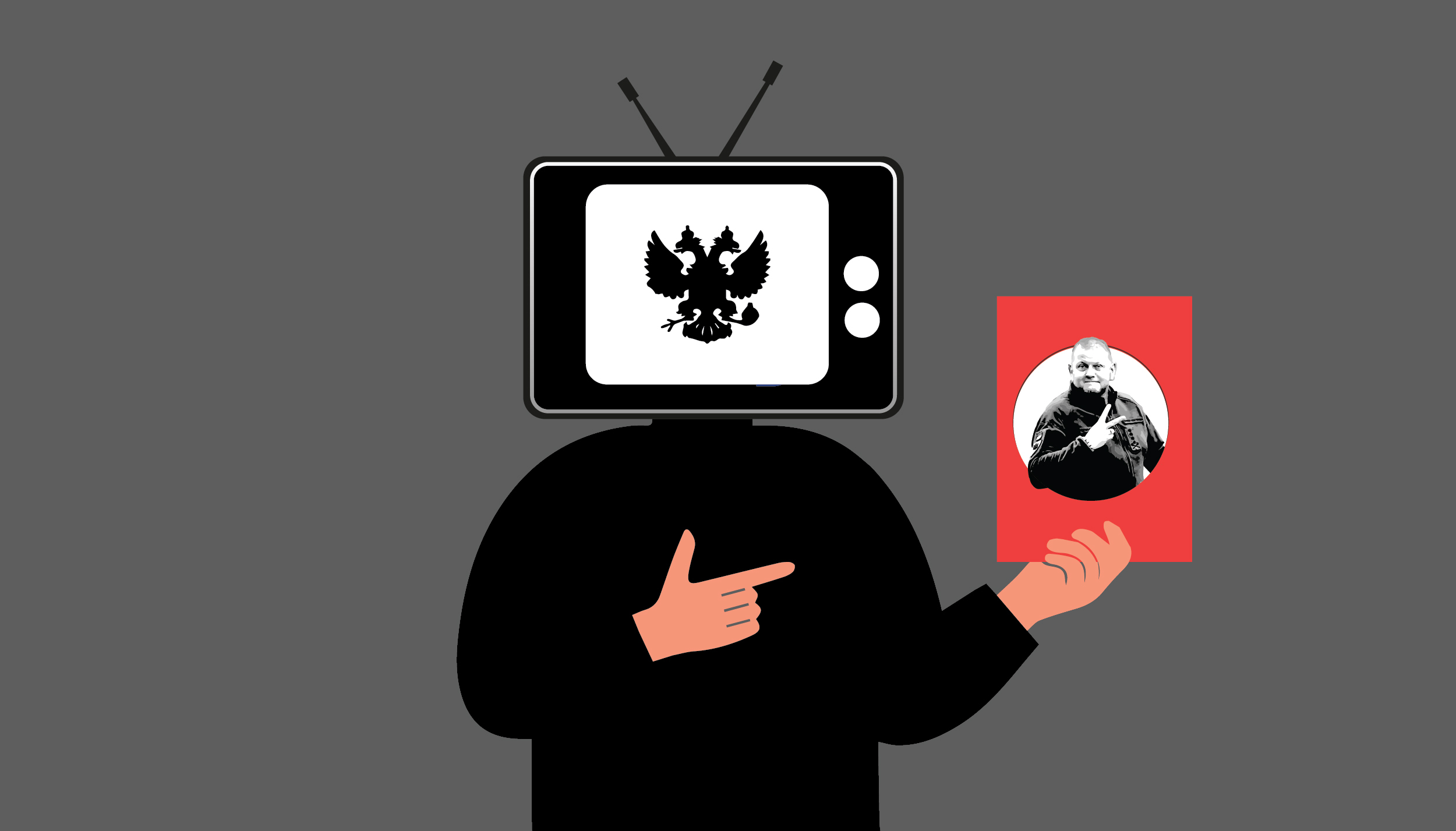Українською читайте тут.
The Russian agitprop environment initiated manipulations surrounding a potential conflict between Ukraine's political and military elite from the early stages of the full-scale invasion. We previously addressed these manipulations in our special project, covering topics like "Zelenskyy blindly believes in victory, and everyone has lost faith in it, even Ukraine’s commander-in-chief," "Zaluzhnyi vs Zelenskyy," "Zelenskyy's war," and "The US is betting on Zaluzhnyi." Similar rumors from anonymous sources have been circulating in the Ukrainian media space for the past few months, reaching a culmination in the recent information surge. This information chaos played into the hands of Russian propaganda.
January 29, 2024, proved to be a tense day for both Ukrainian media and government officials. On this day, former deputy of the Verkhovna Rada, Boryslav Bereza, asserted, based on his information, that President Zelenskyi had dismissed Commander-in-Chief Zaluzhny. Anonymous telegram channels, purportedly linked to former and current MPs, Ukrainian media, and Western journalists with ties to the Office of the President, presented similar sensational "insights." These sources, citing anonymous insiders, indicated Zaluzhnyi's resignation and speculated about potential replacements such as the Commander of the Ground Forces of Ukraine, Oleksandr Syrskyi, or the head of the Main Directorate of Military Intelligence, Kyrylo Budanov.
The Office of the President and the press service of the Ministry of Defense promptly refuted the rumors surrounding the alleged dismissal of Armed Forces of Ukraine Commander-in-Chief Valery Zaluzhny. Ukrainians found themselves torn between believing unconfirmed information spread by certain sources and official statements that contradicted the sensational claims. Seizing the opportunity, Russian agitprop exploited the situation to its advantage.
"Beneficial Disorder"
In Moscow, there were statements indicating a close watch on the situation surrounding Zaluzhnyi and the potential for his resignation. Kremlin press secretary Dmitry Peskov remarked, "It's clear that the Kyiv regime is grappling with numerous problems, and not everything is going smoothly there. The unsuccessful counteroffensive and front-line issues are evidently causing growing disagreements among the representatives of this Kyiv regime. These contradictions will intensify as the special operation progresses successfully."
Russian propagandist Margarita Simonyan expressed the view that, irrespective of the veracity of reports about Zaluzhnyi's resignation, "chaos... is beneficial for Russia." Propagandists became so immersed in fabricating doomsday scenarios that they started reporting on a purported mass upheaval within the ranks of the Armed Forces in response to rumors of the commander-in-chief's alleged resignation. "Ukrainian columns of the Armed Forces of Ukraine abandoned field camps heading towards Kyiv; Zaluzhnyi declared a 'march against drug addict.' Columns have been sighted in Poltava, Chernihiv, Cherkasy, and Kyiv regions," warned one of the propaganda telegram channels. Perhaps this is how the Russians projected memories of Prigozhin's rebellion onto us.
"Personnel Changes as Dictatorship"
"This move toward reinforcing personal dictatorship is a strategy that Zelenskyy is adopting. Such a course of action, according to one of the adversarial sources, will dampen the Western lobby's willingness to support Kyiv if a dictator assumes power. This poses a significant threat," remarked the source. In the eyes of agitprop, alterations in personnel are not seen as a measure of adaptability or seeking optimal solutions but rather as a method of consolidating dictatorial control.
As the head of state and Supreme Commander of the Armed Forces of Ukraine, Zelenskyy wields substantial authority in military management. According to the Law on National Security of Ukraine, the President of Ukraine has the prerogative to independently dismiss the Commander-in-Chief of the Armed Forces of Ukraine and appoint a successor at the request of the Minister of Defense of Ukraine. The Minister of Defense is designated by the Verkhovna Rada of Ukraine upon the head of state's request. Propagandists interpret Zelenskyy's potential exercise of these constitutional powers as an expression of dictatorship, using it as a form of manipulation.
"News about Zaluzhnyi as a Distraction from Ukraine's Defeats"
It is a characteristic feature of propagandists to disseminate conspiratorial versions suggesting that events are not isolated and serve as a diversion from something else.
"They've muddled the information about the downed IL with the downed Il-76," stated an anonymous Telegram channel disseminating pro-Kremlin rhetoric. On January 24, 2024, a Russian Il-76 plane crashed in the Belgorod region. Russia claimed the plane was carrying Ukrainian prisoners of war intended for exchange. This has not been confirmed by either Ukraine or independent investigators.
Another Telegram channel, posits that the news about Zaluzhnyi's purported resignation is a smokescreen to conceal allegedly unsuccessful negotiations between the Minister of Foreign Affairs Dmytro Kuleba, the head of the Office of the President of Ukraine Andriy Yermak, and the Minister of Foreign Economy and Foreign Affairs of Hungary Peter Szijarto in Uzhgorod on January 29, 2024: "There's still a possibility that in Uzhgorod, they couldn't reach any concrete agreements with the Hungarians, putting the loans in serious doubt." Judging by the unanimous EU vote on aid to Ukraine, it appears the propagandists were once again incorrect.
The Impact of Personnel Changes in the Military
Historically, changes in military leadership have occurred at crucial moments, often signaling efforts to address challenging situations. Examples abound of how personnel decisions and structural reforms within the military have yielded positive or negative outcomes.
In the 1950s, American President Dwight D. Eisenhower revamped the military leadership, elevating officers adept at navigating Cold War challenges. Deng Xiaoping, in the 1970s, initiated military reforms in China by purging old-guard leaders and promoting younger, pragmatic officers. This modernization played a pivotal role in China's economic reforms and ascent as a global power. Mustafa Kemal Atatürk, in the 1920s, undertook major reforms in Turkey's military, replacing Ottoman commanders with a new generation, emphasizing modernization, secularization, and professionalism, contributing to the establishment of a stable state.
However, historical instances also exist where changes in military leadership led to defeat or negative consequences. Adolf Hitler's interference in military decisions during World War II, notably removing experienced leaders like Field Marshal Erich von Manstein, resulted in disastrous outcomes for Germany. Nikita Khrushchev's dismissal of Marshal Georgy Zhukov weakened the Soviet Army, impacting the defense capability of the Soviet Union. In the 1970s, US President Richard Nixon's frequent changes in military leadership during the Vietnam War contributed to strategic incoherence and undermined morale in the US military, affecting the overall outcome of the war.
Crucial in the event of a potential resignation is who will assume the post of commander-in-chief and whether Zaluzhnyi himself will offer symbolic support to his successor, enhancing the moral stability of the Ukrainian army.
The time for such information upheavals is not very favorable. The Verkhovna Rada is working on a draft law on mobilization, all previous versions of the provisions caused mixed reactions in society. In addition, the issue of rotation and demobilization of Ukrainian military personnel has not been settled. Adding to the tension is the fact that, according to the head of the Ministry of Finance, Ukraine has exhausted its internal potential for financing military needs, and aid from the United States of America has been suspended until Congress approves new funding. Intimidation and harassment of journalists and anti-corruption activists aggravates the situation.
According to the supreme commander, the year 2024 will be decisive in many ways on the front, and "to endure this year means to endure this whole war."
Collage: "Media Detector"



